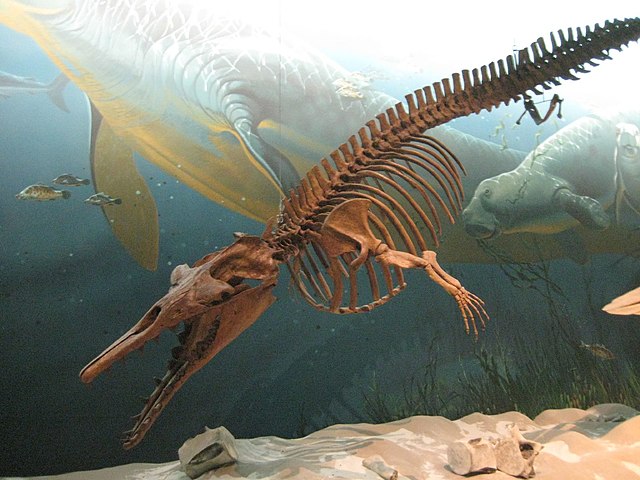Dorudon ("spear-tooth") is a genus of extinct basilosaurid ancient whales that lived alongside Basilosaurus 40.4 to 33.9 million years ago in the Eocene. It was a small whale, with D. atrox measuring 5 metres (16 ft) long and weighing 1–2.2 metric tons. Dorudon lived in warm seas around the world and fed on small fish and mollusks. Fossils have been found along the former shorelines of the Tethys Sea in present-day Egypt and Pakistan, as well as in the United States, New Zealand and Western Sahara.
Dorudon
Dorsal and right lateral views of reconstructed skeleton of Dorudon atrox
Virtually complete Dorudon atrox skeleton excavated at Wadi El Hitan, displayed at the University of Michigan museum
Dorudon hind limbs, an example of vestigial organs, at Smithsonian Natural History Museum, Washington, D.C.
Basilosauridae is a family of extinct cetaceans. They lived during the middle to the early late Eocene and are known from all continents, including Antarctica. They were probably the first fully aquatic cetaceans. The group is noted to be a paraphyletic assemblage of stem group whales from which the monophyletic Neoceti are derived.
Basilosauridae
Drawing of Dorudon skeleton.
Cynthiacetus, mounted skeleton.
Zygorhiza, mounted skeleton.







